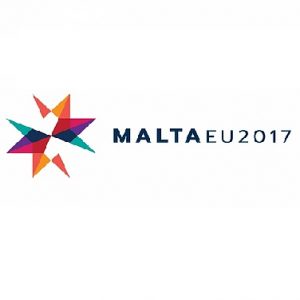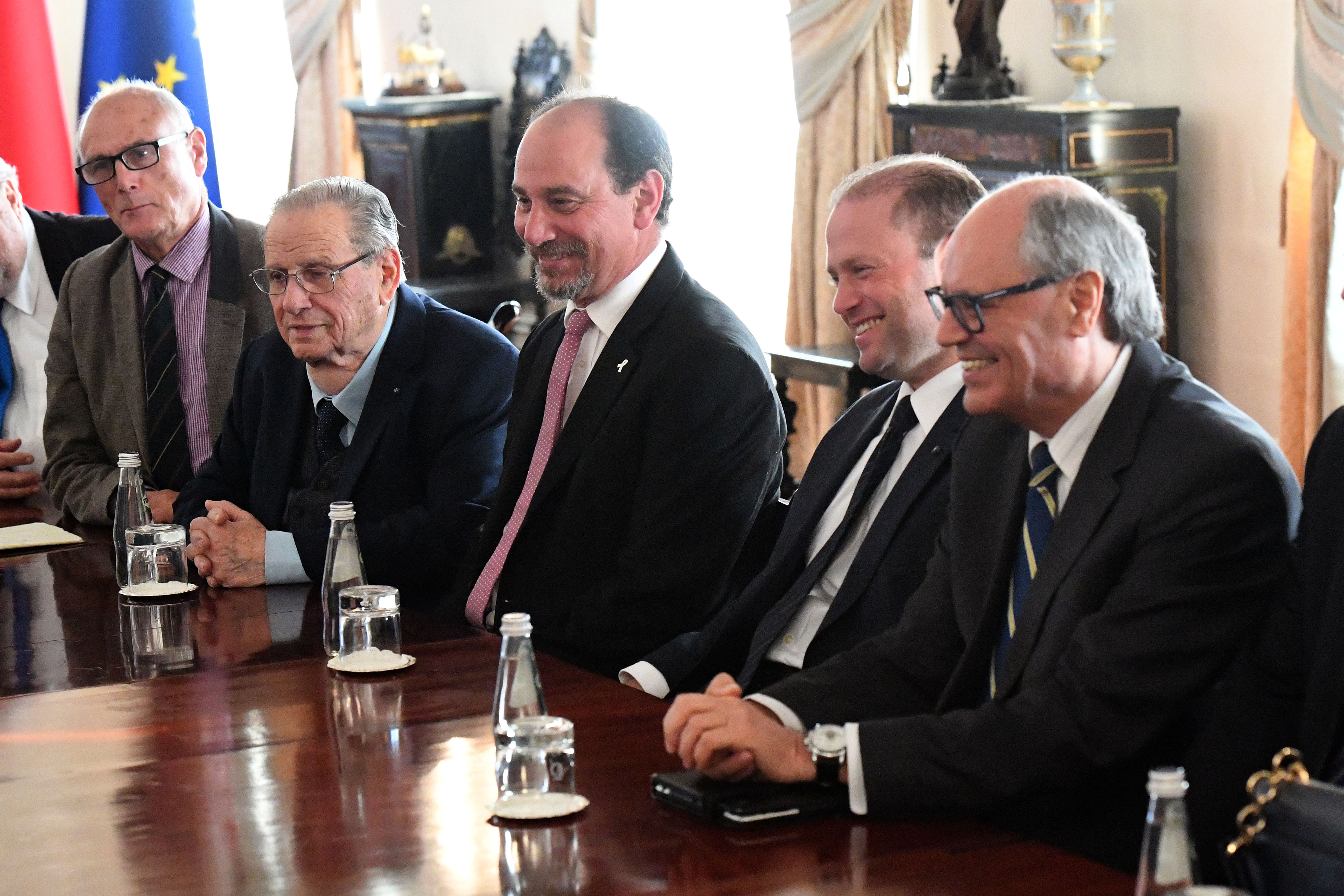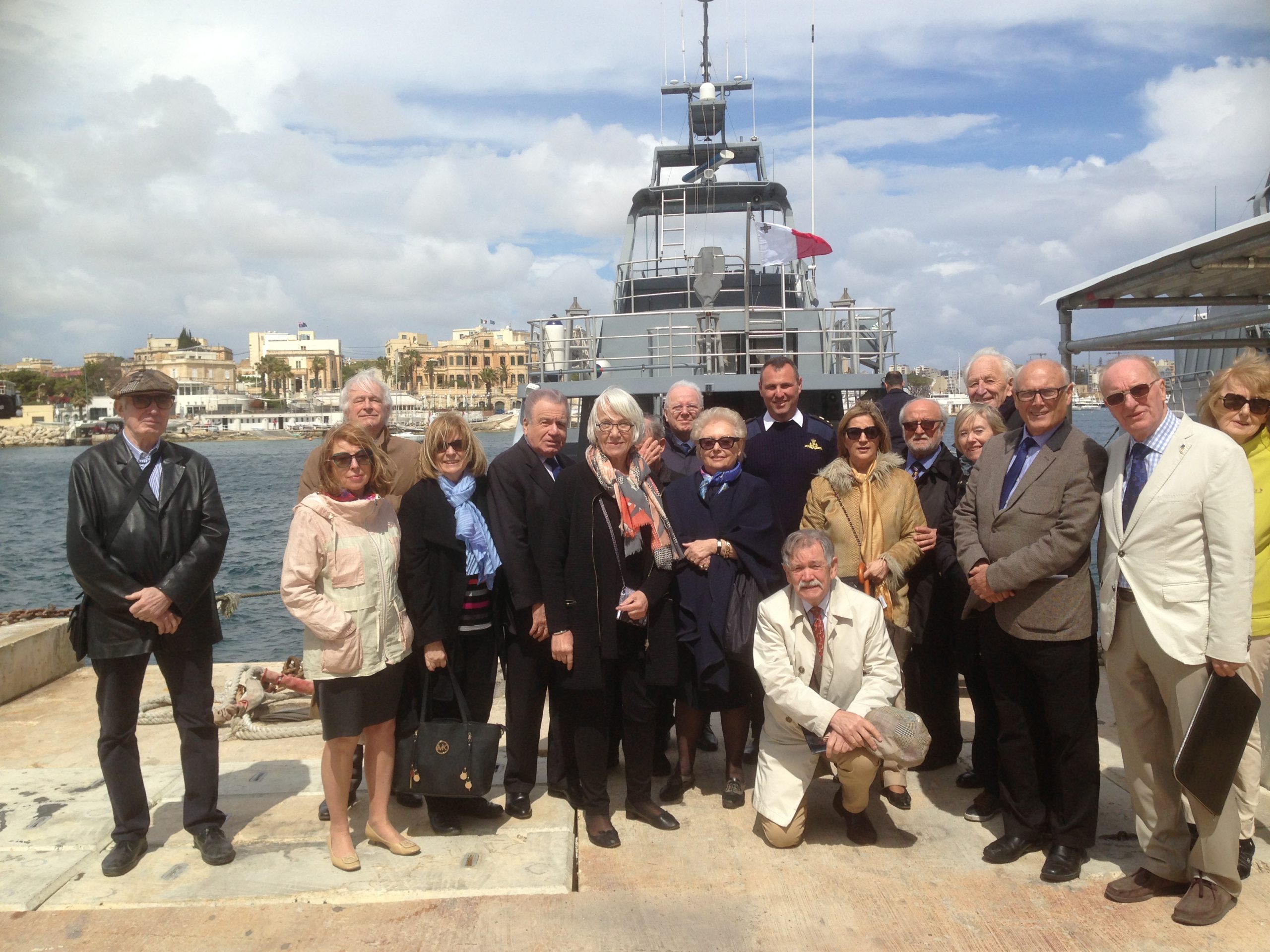
- This event has passed.
2017 FMA Visit to Malta

Sources
Report
The visit took place on 3 and 4 April 2017. Meetings were held at the House of Representatives, European Asylum Support Office and the Armed Forces of Malta Maritime Base HQ.
On 3 and 4 April, our Association made a study trip to Malta – a two- day immersion in the long and rich history of a country that harbours great ambitions for Europe.
In broad brushstrokes, the history of Malta may be traced back from the Phoenicians and St Paul, through the Battle of Lepanto in 1571, which saw the defeat of the Ottomans and was the first awakening of a European identity rooted in Christianity, the reign of the Knights of St John until 1798, the rivalry between the major Catholic powers, and the brief period of Bonapartist reform resulting in French occupation until the Congress of Vienna, to British rule and eventual independence. Malta is a product of and key witness to centuries of conflict in the Mediterranean and Europe as a whole. Owing to its strategic position in the heart of the Mediterranean, over the centuries Malta has played a role out of all proportion to its size and population.
It has been independent since 1964, became part of the EU in 2004, and joined the eurozone in 2008. Malta takes great pride in itself. Its capital is an open-air museum of our civilisation, in which the palaces, known as ‘auberges’, built by Grand Masters from the leading Catholic powers, vie to outdo each other for splendour.
These ancient buildings now provide official residences for the country’s President, Prime Minister and Foreign Minister, the past rubbing shoulders with the present. Renzo Piano has magnificently redesigned the entrance to the old town and built a new Parliament, the stone structure of which ties it in with Malta’s past, while the Chamber, which is very modern in design, looks forward to the future. The Parliament, which was previously housed in the President’s Palace, wished to assert its independence of the executive by having its own building.
The Speaker of the Parliament and the chair of its Committee for Foreign and European Affairs welcomed us to the building for a guided tour and discussions on European issues. Our Maltese friends’ commitment to the European project was clearly apparent during our delegation’s talks with the President of the Republic, the Labour Prime Minister and the Speaker of the Parliament. Our politically diverse group asked questions and offered suggestions at a time when Europe appears unsure of itself and needs at all costs to rediscover its energy and sense of direction.
Malta is comfortable on the European stage, supported by its rich history and its ability to act as a facilitator and host international conferences. The Prime Minister supports the idea of a multi-speed Europe. The old taboo against some Member States moving forward faster than the others has finally been broken. He reiterated the priorities of the Maltese Presidency, based on those established by the Presidential Trio (the Netherlands, Slovenia, Malta) in 2016: migration policy, gender equality, development of the Digital Single Market, combatting terrorism, maritime governance and a specific approach for the Western Mediterranean.
The Maltese authorities repeated their willingness to help find a solution to the chaos in Libya and reiterated their support for democracy in Turkey. Our delegation endorsed this approach.
We were also welcomed to the naval base by Maltese army officers. They spoke to us about the armed forces and their duties, including in the fight against terrorism. We were taken out on a launch to view Malta from the sea, giving us a taste of what the Knights must have felt on approaching this magnificent island. Malta will be a European Capital of Culture in 2018. I see the island as an obvious choice, given its beauty, architectural splendour and artistic treasures of all kinds. St John’s Cathedral, with its rich baroque interior, honed and perfected over the centuries by the Grand Masters and the Catholic Church, and Caravaggio’s masterpiece, the Beheading of St. John the Baptist, with its exceptionally fine use of chiaroscuro, are particularly magnificent.
Our discussions with our hosts centred around the future, culture, politics and the importance of European solidarity. The discussions were led with skill and authority by our friend Enrique Barón Crespo.
Jean-Paul Benoit, PSE, France (1989-1994)

FMA members with Hon Prime Minister, Mr Joseph Muscat.

FMA members
